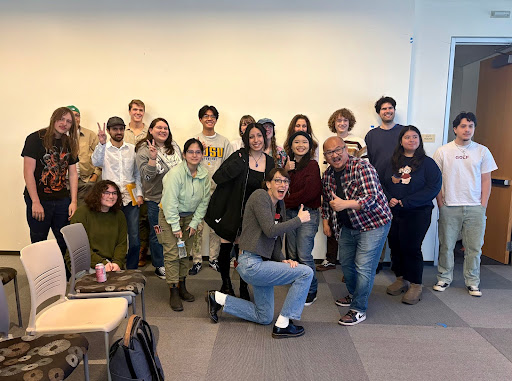In the late 1960s and early 1970s, college students across the country protested the Vietnam War, racism and the established order. They expressed diverse and dissenting points of view, some forming resistance groups, such as Students for a Democratic Society and the Student Nonviolent Coordinating Committee, and tens of thousands of others took to the streets.
But college campuses are very different places today. Even though we are in the midst of a bloody war in Iraq and another one in Afghanistan, students appear largely apathetic. Sadly, they seem far more interested in the minutiae of vacuous celebrities’ lives than what atrocities are happening in other parts of the world.
But that apathy was jolted Oct. 21 on the DVC campus when the American Friends Service Committee brought an anti-war exhibition to the Main Quad and again on Oct. 30, when Contra Costa Radical Action and World Can’t Wait put on a frighteningly realistic waterboarding demonstration.
These groups brought the reality of war and torture to the college in the hope of opening students’ eyes to what is happening in their name, but some were not receptive to the message.
“It’s kind of like pouring gas on the fire,” said DVC student Seth Craven. “Yeah, it gets people to talk, but it’s not being civil. It does more harm than good.”
But getting people to talk openly about such subjects absolutely belongs on a college campus, whether or not you support the wars or the U.S. military’s use of torture. Yes, the realism of the waterboarding demonstration was upsetting. But those who witnessed that simulation, will never again see that word without recalling the sights and sounds of a person gagging under a towel as water was poured on his face.
AFSC’s anti-war exhibition attempted to show students the financial as well as human cost of the Iraq War. And while many students seemed to appreciate their message, some veterans on campus were upset.
“They were using shock to get their message across,” said Niccola DeVereaux, a DVC student and Iraq War veteran. “It was disrespectful to the 170 veterans on campus.”
But disrespect was not the intent.
How can you make an educated decision about whether something is right or wrong when you’ve never witnessed it or even openly debated its merits?
We need more, not fewer of these kinds of events.
Four decades ago, students were at the forefront in protesting a destructive war in Vietnam, Laos and Cambodia, as well as the terrible injustice of racial discrimination.
And even more recently students in the 1980s played a key role in the movement that ended apartheid in South Africa and were dedicated activists in the anti-nuclear movement and struggled to end the military slaughters in Central America.
Their protests helped to change the world.
It would be a tragic betrayal of that courageous legacy to ignore the evils of war and torture and to complain that dissenting groups don’t have a place on the college campus.





































































